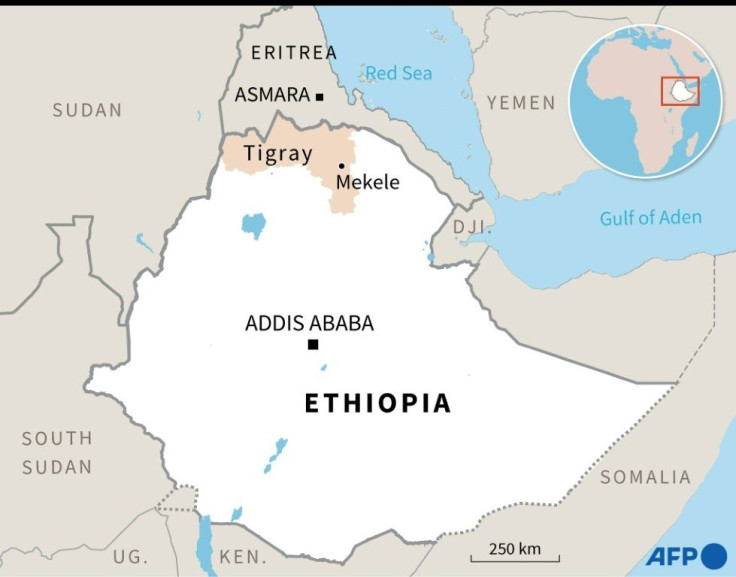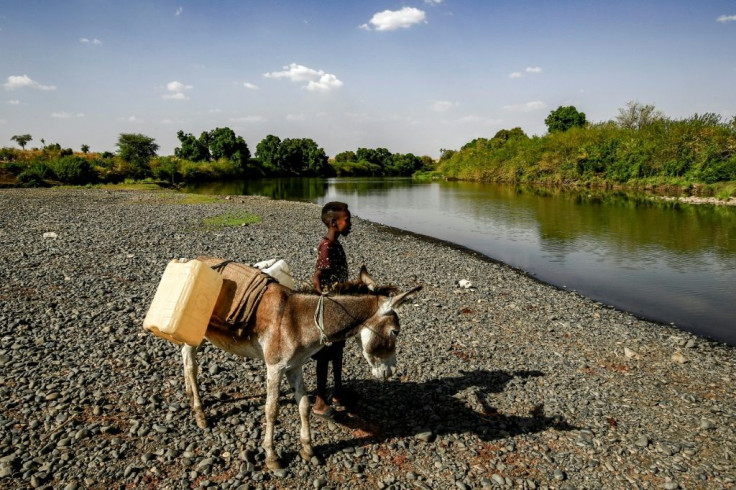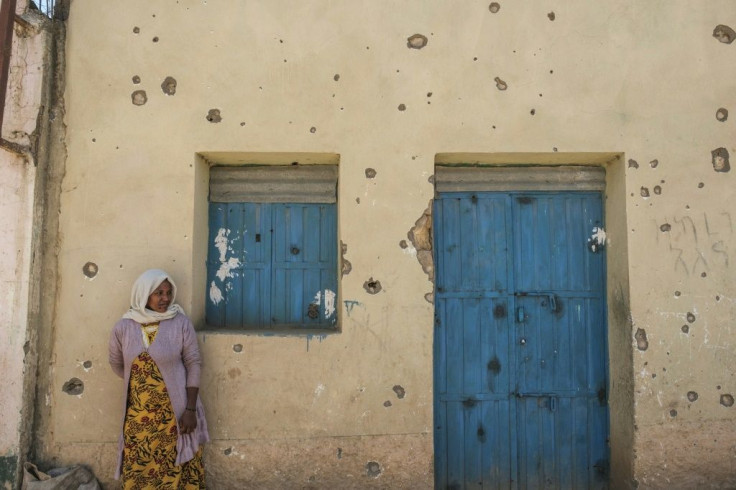US, EU Demand Action To End 'Nightmare' In Ethiopia's Tigray
The US and EU issued an impassioned plea Thursday for greater international efforts to tackle an emerging famine in Ethiopia's Tigray and end the conflict wracking the region.
"Famine may already be happening in certain areas, threatening the lives of hundreds of thousands. It's unconscionable," US ambassador to the United Nations Linda Thomas-Greenfield told a roundtable event, decrying the failure of the UN Security Council to hold a public meeting to end the crisis.
The Security Council will discuss the conflict on Tuesday, diplomats said, but the session will be held on an informal basis because of Ethiopian opposition to the council taking up the matter -- a view shared to varying degrees by several members including Russia, China, Vietnam, India and African countries.

It will be the UN body's first session on the crisis since April 22. Since then, the ambassador of one council member said, speaking on condition of anonymity, "The situation has not improved, nor has humanitarian access."
Thomas-Greenfield said the stakes were high, adding, "We are witnessing a humanitarian nightmare.
"We cannot let Ethiopia starve. We have to act now" to resolve what she called a "man-made" emergency.
Ethiopian Prime Minister Abiy Ahmed, winner of the 2019 Nobel Peace Prize, sent troops into the northern region in November to detain and disarm leaders of the Tigray People's Liberation Front, the region's former ruling party.

He said the move came in response to TPLF attacks on federal army camps.
Though he vowed the conflict would be brief, fighting continue more than six months later and reports of atrocities -- including the widespread use of rape -- are proliferating. Many leaders have warned of a major catastrophe.

The UN has said that more than 90 percent of the more than five million people in the Tigray region need emergency food aid, and has urgently appealed for more than $200 million to scale up its response.
"There is famine now in Tigray," UN humanitarian chief Mark Lowcock told the event.
"And every expert you speak to will tell you this is going to get a lot worse."

Lowcock said fresh data showed the number of people classified as being in famine conditions was "higher than anywhere in the world at any moment since a quarter of a million Somalis lost their lives in 2011".
He said that two million more people "were just a step away from those extreme conditions" and lamented the fact that some of the key UN agencies seeking to tackle the crisis have "essentially no money".
"We really do need everybody to step up," he said.
The US has announced $181 million of additional funding to "deliver life-saving food, agricultural supplies, safe drinking water, shelter, health care and essential services" to those in need in Tigray.
But international aid organisations have complained repeatedly that they are being denied access to the region by Ethiopian forces and troops from neighbouring Eritrea.
"To avoid humanitarian catastrophe, the entire international community must act directly and indirectly, quickly and robustly," EU crisis management commissioner Janez Lenarcic said.
The head of the United States Agency for International Development (USAID), Samantha Power, said Ethiopia's military allies "have burned and looted seeds and farm equipment and slaughtered oxen to ensure that the fields lay fallow, so determined are they to eliminate livelihood".
"These same forces have threatened, intimidated, detained and even killed aid workers attempting to feed the hungry," she said.
A statement Thursday from the UN World Food Programme underscored the need for greater access if the world is to "avoid a catastrophe".
The Rome-based agency said it had rapidly bolstered its aid efforts but is still being blocked by armed groups from reaching areas of great need.
"Millions of people urgently need food," it said. "Without it, many of them will die."
bur-del/dc/wai
© Copyright AFP {{Year}}. All rights reserved.





















